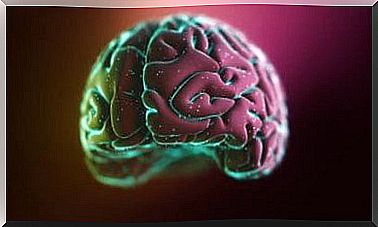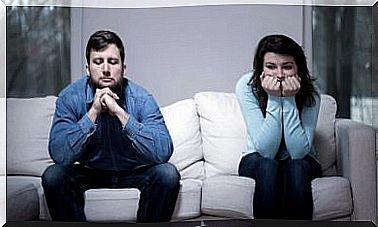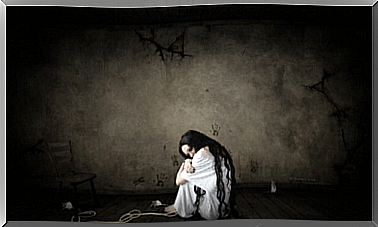How To Regulate Negative Emotions Effectively?

Have you ever stopped to think about how you tend to react when you feel bad? And if those behaviors that you carry out really help you to reduce discomfort? The reality is that, sometimes, we do not know how to regulate negative emotions effectively or at least, if we do, we have a great margin for improvement.
Let’s take an example: who doesn’t know someone who, after a painful breakup, has taken to drinking and partying to overcome the sadness and anger they feel? In that first moment, you may have managed to distract yourself from the situation. But, in the long run, has it helped you to solve something or has your well-being recovered thanks to implementing other types of strategies?
Classifying the different ways of regulating negative emotions
Emotional regulation encompasses a set of processes. Through them, people exert an influence on our emotions, on when we have them and on how we experience and express them. That is, it refers to how we modulate them. This way of doing it can be adaptive (beneficial and functional) or maladaptive (dysfunctional). But how do you know which ones help us and which ones don’t?
Before answering this, let’s learn about the different ways of regulating emotions that we put into practice. On the one hand, we can try to regulate negative emotions by implementing active strategies. Some of them are the positive reevaluation of the situation, planning what we have to do, seeking personal development, trying to solve the problem or expressing what we feel.

On the other hand, we can use other more passive strategies, such as conforming to the situation, reacting depressively or letting things be, without trying to remedy it. Finally, there are the avoidance strategies, in which it is a question of denying what happened, distancing ourselves from it or mentally disconnecting, even putting in place palliative responses that attack the anxiety and not the cause (such as eating or drinking to feel better) .
What way of regulating negative emotions does not help us?
Dysfunctional emotional regulation strategies make us more emotionally unstable, in addition to causing negative emotions to take center stage and stay with us. The results of this lack in our regulation can be very diverse, but none positive. We talk about anger management problems, anxiety or depression.
As we have said, within this trunk of bad strategies we find avoidance and passive strategies. When we feel bad, it is counterproductive to try to deny what happened. There is an exception and it is when the news causes us a very strong emotional impact, in these cases it can serve in the first moments as a retaining wall for this emotional impact. However, even in these cases we have to end up abandoning it and adopting others.
Nor is it going to help us at all to dwell on the subject, focusing on how bad we are and feeling sorry for ourselves. Self-knowledge of our state, when it is negative, gives us information to act; however, it becomes a danger to us when we are tempted to stay with it and not act.
The same happens if we try to disengage from what happens to us by consuming alcohol, drugs or eating excessively. All of these strategies dissipate the feeling of discomfort for a few moments. However, it is only a band-aid that will come off soon, so we will need a larger one later. The reality is that none of these strategies helps us to regulate negative emotions effectively, because in the long run it causes them to remain and increase.
What are the ways to regulate negative emotions that do help us?
If this repertoire of strategies does not help us to regulate negative emotions … What strategies would be appropriate? Those that involve active coping with what has happened to us. Among them, the ability to reinterpret the situation in a positive way is one of the most important, as well as looking for a solution to the problem and putting it into action. Stop to think, but without settling into inaction.

In addition, it will help us to have other sources of positive emotions that restore the broken balance. On the other hand, it is important that we are able to express our emotions and seek social support. Of course, assuming the responsibility that the responsibility for the final decision must fall into our hands.
The reality is that putting these emotional regulation strategies into action can involve an extra effort at first, as they require direct actions on our part, but they are necessary to ensure that negative emotions do not become chronic … Learn to regulate negative emotions effectively!
Images courtesy of Cristopher Windus, Daniel Páscoa and Matthew Henry.









